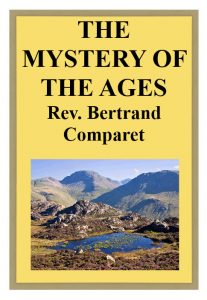IT IS AMAZING HOW MUCH THERE IS IN THE BIBLE which is not known even to the most devout Christians, because it is concealed from them by the many mistranslations in the commonly‑used King James’ Version of the Bible. Because of these mistranslations, many false doctrines have developed among people who faithfully believe what they have read‑‑‑not knowing that what they read is sometimes mistaken. One of these errors which has misled many is the mistranslation of the Greek word “aion”‑‑‑meaning “an age” ‑‑‑as everlasting”, “eternal”, etc. For example, we see many places where the King James’ Version speaks of “everlasting life” and many others where it speaks of “eternal life”: and some fine, devout people have worked up elaborate doctrines about the supposed difference between “everlasting” life and “eternal” life.
Will it shock you to learn that the Bible actually makes no such distinction at all? The New Testament is where we find these references; and you know that almost all of our English New Testaments are translated from ancient manuscripts written in the Greek language. In Greek, “aion”, commonly called “aeon” in English, means “an age”‑‑‑a period of time of long, but indefinite, duration. And the Greek word “aionios”, commonly called in English “aeonian”, means “to the age”‑‑‑that is, to the end of the age. If you will look up in a good Concordance every reference to “everlasting” life, you will find that in every case the word translated “everlasting” Is this Greek word “aionios”, meaning “to the end of the age.” Now also look up every reference to “eternal” life, and you will see that, in every case but one, this, also, is the same Greek word, “aionios”. The translators simply got tired of always using the same English word, and thought it made a better literary style to use sometimes the word “everlasting” and sometimes the word “eternal”. Where now do you find the elaborate distinctions between the two kinds of life? Not in the Bible surely; only in the mistranslation.
